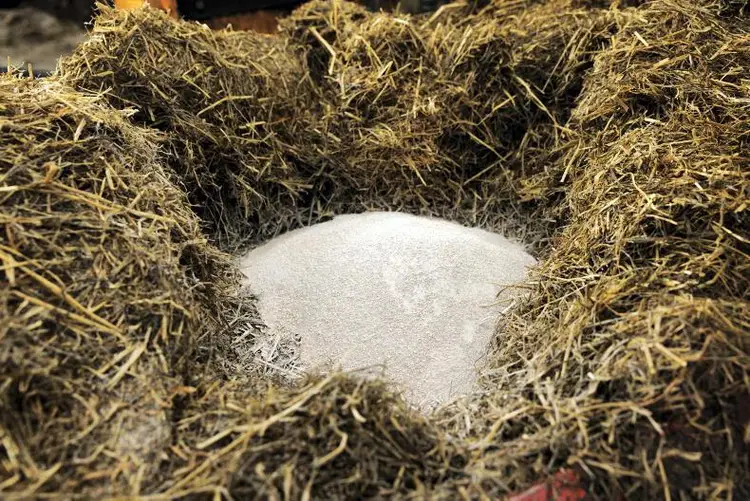Claims around the safety of feed additive Bovaer 'completely false' - Arla

Arla has denied accusations circulating on social media regarding the safety of the feed additive Bovaer for dairy cows, asserting that these claims are entirely untrue.
Recently, the UK milk processing company has faced backlash after choosing to test a feed additive as part of a new effort to lower emissions in collaboration with retailers Morrisons, Aldi, and Tesco.
There have been online claims suggesting that Bill Gates, the co-founder of Microsoft, is connected to DSM, the company that produces Bovaer.
An Arla representative told the Irish Farmers Journal, "The rumors circulating online about our connection to Bill Gates and the safety of the Bovaer feed additive are entirely untrue."
"Ensuring the well-being of our customers and animals is our top priority, and Arla is committed to maintaining the highest quality and standards in the milk we create."
"Bovaer has been safely and widely used throughout Europe, and at no time during the testing will it affect the milk, as it doesn't transfer from the cow to the milk."
Regulatory agencies like the European Food Safety Authority (EFSA) and the UK Food Standards Agency have endorsed its use, citing research that shows it does not pose any risk to animal welfare, health, productivity, or milk quality.
DSM has stated that Bovaer is both safe to use and effective in lowering emissions. They also noted that the announcement of trials in the UK has led to misunderstandings and false information regarding its safety.
The development of Bovaer started 15 years ago and allows farmers to cut down on methane emissions from dairy, beef, and other ruminant livestock, contributing to the fight against global warming.
In a statement, DSM announced that regulatory and scientific studies indicate Bovaer is safe for both consumers and animals, and it does not affect milk production or reproductive capabilities.
Paul Tompkins, chair of the dairy board for the National Farmers Union (NFU), stated that research conducted by the Department for Environment, Food and Rural Affairs (DEFRA) indicates that consumers are largely supportive of products that reduce methane emissions, as long as they do not harm human or animal health.
“It’s essential for us to establish a solid foundation of evidence that will encourage farmers to adopt these products. The collaborative trial involving Arla, Morrisons, Aldi, and Tesco could play a key role in generating this evidence,” he explained.
In 2023, the Food Standards Agency in the UK announced that the primary component of Bovaer (3NOP) is safe for both people and the environment. They also reported that when ruminants are given this additive daily at the recommended amount, it effectively lowers methane emissions.
Several research projects have been conducted at Teagasc Moorepark, where feed additives were administered in various ways: during milking in the parlour, through a total mixed ration (TMR), and mixed into the minerals before they were added to the silage.
According to Dr. Hazel Costigan from Teagasc, the key component in Bovaer, known as 3NOP, has been shown to decrease enteric methane emissions by 22% when included in a total mixed ration (TMR) for livestock.
UK cooperative to test feed additives that reduce methane emissions.











































